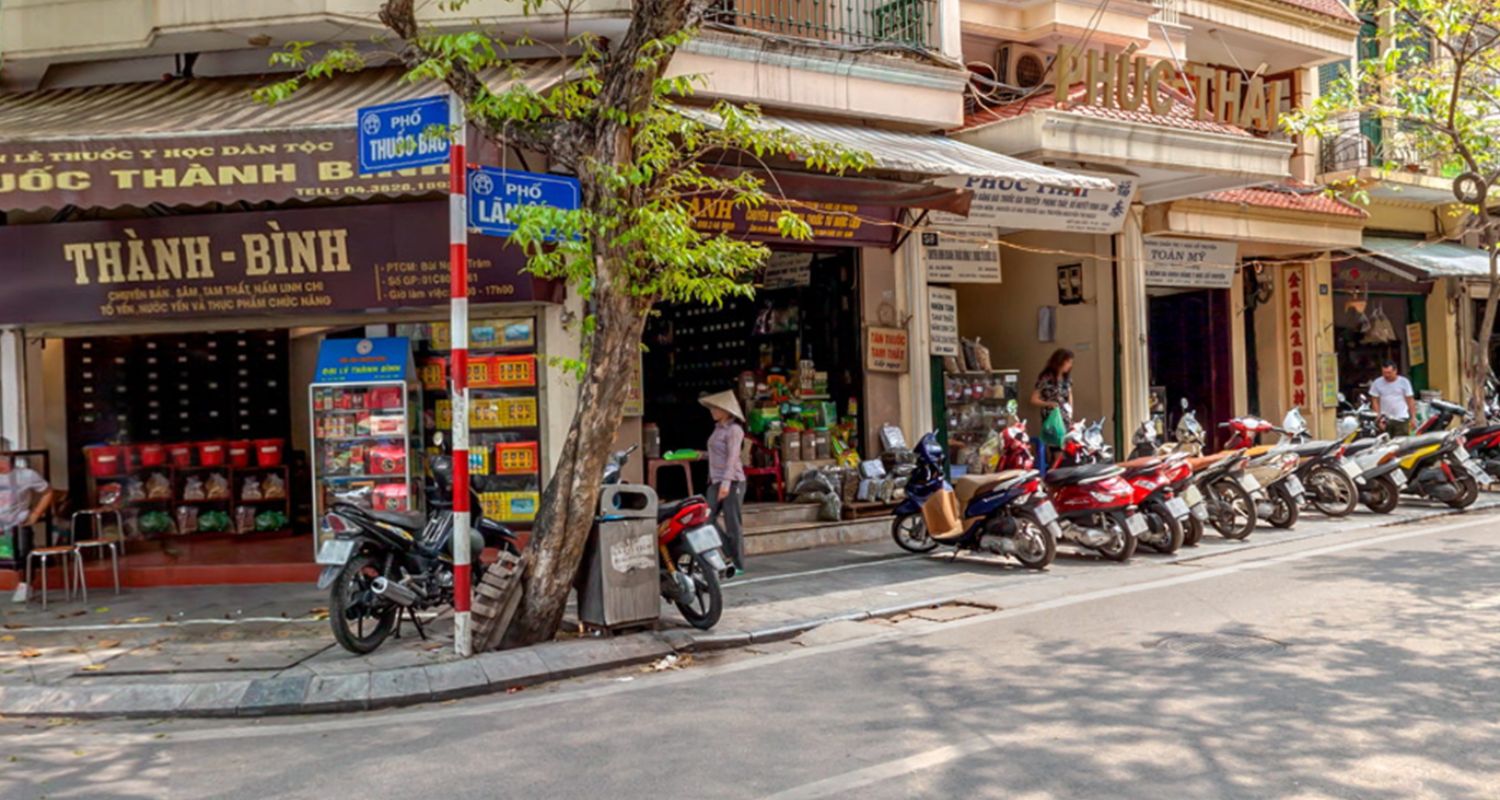In the labyrinthine maze of the historic district of the Vietnamese capital, here is an experience placed under the sign of well-being. Under the benevolent company of Mr. Dien, you will discover miracle ingredients, good old grandmother's recipes, a few legends and above all conviviality.
Vietnamese traditional medicine
This one comes from traditional Chinese medicine and bears the ancestral name of Thuốc Nam, that is to say “the herbalism of the South”. South, compared to the ancient Chinese Empire, the Middle Kingdom. Along with yoga, thuoc nam is one of the two traditional healing methods in Vietnam. His teaching must be based on Buddhist, Taoist and Confucianist thoughts, but also on the sciences and the arts.
But unlike traditional Chinese medicine, the Vietnamese version is based entirely on fresh or simply dried local ingredients. And we frequently seek common herbs and flowers and everyday vegetables, such as Vietnamese mint (Persicaria odorata), chrysanthemum, water bindweed or bitter cucumber...
You will be in good hands
It is in a traditional apothecary's shop with its wooden counter and cupboards from the 1950s that you will meet Mr. Dien. This man is 48 years old and comes from the province of Nam Dinh, in the south of Hanoi.
Coming from four generations of physicians, Mr. Dien considers himself the guardian heir to ancestral and family traditions. In particular, he studied at the Hanoi University of Medicine, founded by Hồ Đắc Di.
Hold out your hands to him and he will give you a little consultation according to the rules of traditional medicine. A little fever? Nausea? Muscle pain, tell him everything.
Subsequently, Mr. Dien will prepare on a yellow-brown sheet, an assembly of 100% natural ingredients, in order to prepare an explosive and revitalizing concoction.
Lãn Ông Street in Hanoi
Mr. Dien's shop is located on the street once entirely dedicated to traditional medicine in Hanoi. The establishment of apothecaries on this street dates back to the beginning of the 19th century, when the street was home to many immigrant Chinese families, originating from Fujian province in China. It is the latter who have generalized the practice of this medicine in this district.
This street took the name of Lan Ong, nickname of Le Huu Trac, a famous Vietnamese doctor of the 18th century. Along with Thuốc Bắc Street, it has retained these irresistible flavors of health and a large part of Hanoi's soul.



